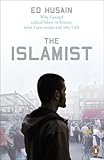This post is by occasional contributor Dalia Malek, who works on refugee issues in Egypt and whom we hope will continue to provide insights into refugees and migration as well as Egyptian politics. You should also watch Channel Four's recently aired documentary looking at Eritreans in Sinai who tried to sneak into Israel.
Asylum seekers and refugees in Egypt face a threat of deportation to countries where they risk persecution. This violates the cornerstone of international refugee law that prohibits such deportations—the principle of non-refoulement.
Refugees in Sinai have attracted media attention because Egyptian authorities have caught, arrested, shot, or even killed an increased number of those attempting to illegally cross the border from Egypt into Israel.
Others in Sinai have been kidnapped or held hostage by smugglers or traffickers who may have deceived these mainly-Eritrean individuals into believing that they can assist them with entering Israel for a high enough price. There are reports that they have led them as far as Sinai and then held them hostage until they can provide more money; in the meanwhile, they are subjected to torture, rape and other sexual abuses.
Legally speaking, it is important to differentiate between migrants whom the Egyptian authorities have detained—whether refugees, asylum seekers or other categories of migrants.
Some refugees in Egypt have been in detention from as far back as February 2008. A group of several Eritreans and Ethiopians, as well as a few Somalis, are currently being held in Qanater prison; some of them have been detained for entering Egypt illegally, mainly through the Sudanese border. Many of them are held with criminals who have life sentences for crimes like drug trafficking.
This is a particularly vulnerable group for a few reasons. Firstly, their detention violates the 1951 Convention Relating to the Status of Refugees, which Egypt has ratified. The law says that illegal entry of refugees fleeing persecution should not be penalized granted that they present themselves to the authorities within a reasonable amount of time and can explain their illegal entry or presence. Secondly, the United Nations High Commissioner for Refugees (UNHCR), the agency responsible for conducting refugee status determination in Egypt, has not been able to access all such detained asylum seekers due to lack of response from the government authorities. While the UNHCR is the main actor involved in upholding the legal status and welfare of refugees in Egypt, the Egyptian government is the only authority.
The UNHCR may not have the most accurate record of asylum seekers and refugees in detention if the government has failed to coordinate with them about certain detainees. This may leave a number of asylum seekers and refugees unaccounted for in the event of a deportation like we saw in the summer of 2008.
On the other hand, the detention of those who were caught attempting to cross the border with Israel illegally is lawful.
One such group of over 85 Eritreans and Ethiopians are currently detained in Al-Mustaqbal police station in Ismailia. They are at risk of being deported to countries where they may face incommunicado detention, torture, sexual assault or rape and other abuses of human rights.
It is more likely that if these detainees have been in Cairo, they have previously had a chance to approach the UNHCR, and many might already be recognized refugees. This differentiates them from those whose right to seek asylum has not been upheld. However, if those who attempted to enter Israel are bona fide refugees, their deportation is still illegal.
Since the Egyptian government authorities may be excluding the UNHCR from playing its delegated role in offering international protection to these detainees, it remains uncertain whether these crucial distinctions will be made. It is imperative that the authorities are aware of the danger that deporting refugees to countries where there is a high risk of persecution poses to these detainees, as well as Egypt’s legal obligation not to deport.

